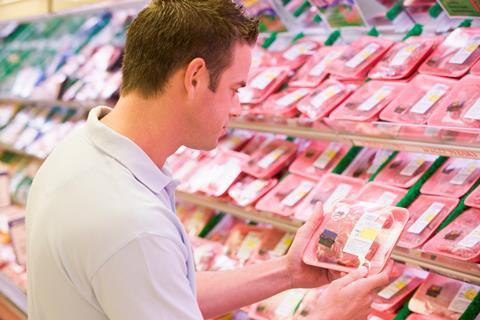According to the latest Kantar figures, grocery price inflation fell over the four weeks to 7th July as supermarket footfall increased.

Kantar said that grocery price inflation had fallen to 1.6%, its lowest figure since September 2021. At the same time, supermarkets saw the fastest increase in monthly footfall so far this year, with consumers visits up 2% on the year.
Take-home sales increased by 2.2% over the four weeks to 7th July 2024, and Kantar reported a 3.6% increase in branded product sales, outpacing own-label items at 2.7%.
Online discounter Ocado now has a 1.8% market share, with sales up by 10.7% over the 12 weeks to 7th July. Lidl’s sales increased by 7.8% to hit a market share of 8.1%, while Waitrose achieved a 0.1% rise to a 4.5% market share.
Tesco took 27.7% of the market to achieve its biggest share gain since November 2021, as Sainsbury’s increased sales by 4.7% over the latest 12 weeks to achieve a 15.3% market share.
Morrisons accounted for 8.7% of the market, while Asda held a 12.7% share. Aldi held a market share of 10% while Co-op held 5.7% of the market, with Iceland maintaining its 2.3% market share.
Fraser McKevitt, head of retail and consumer insight at Kantar, said: “England’s hopes might have been dashed on Sunday, but there was still some cause for celebration in the grocery industry. Sales of crisps and snacks got a boost, up by 5% compared with the month before. With many matches played on “school nights”, though, some Britons chose moderation.”
McKevitt continued: “The retail landscape looks very different from 2010 when the last Labour Government was in power – and so do our shopping trolleys. As diets have evolved, sales of popcorn, peanut butter and chilled vegetarian products, such as sausages and grills, have more than trebled.”















